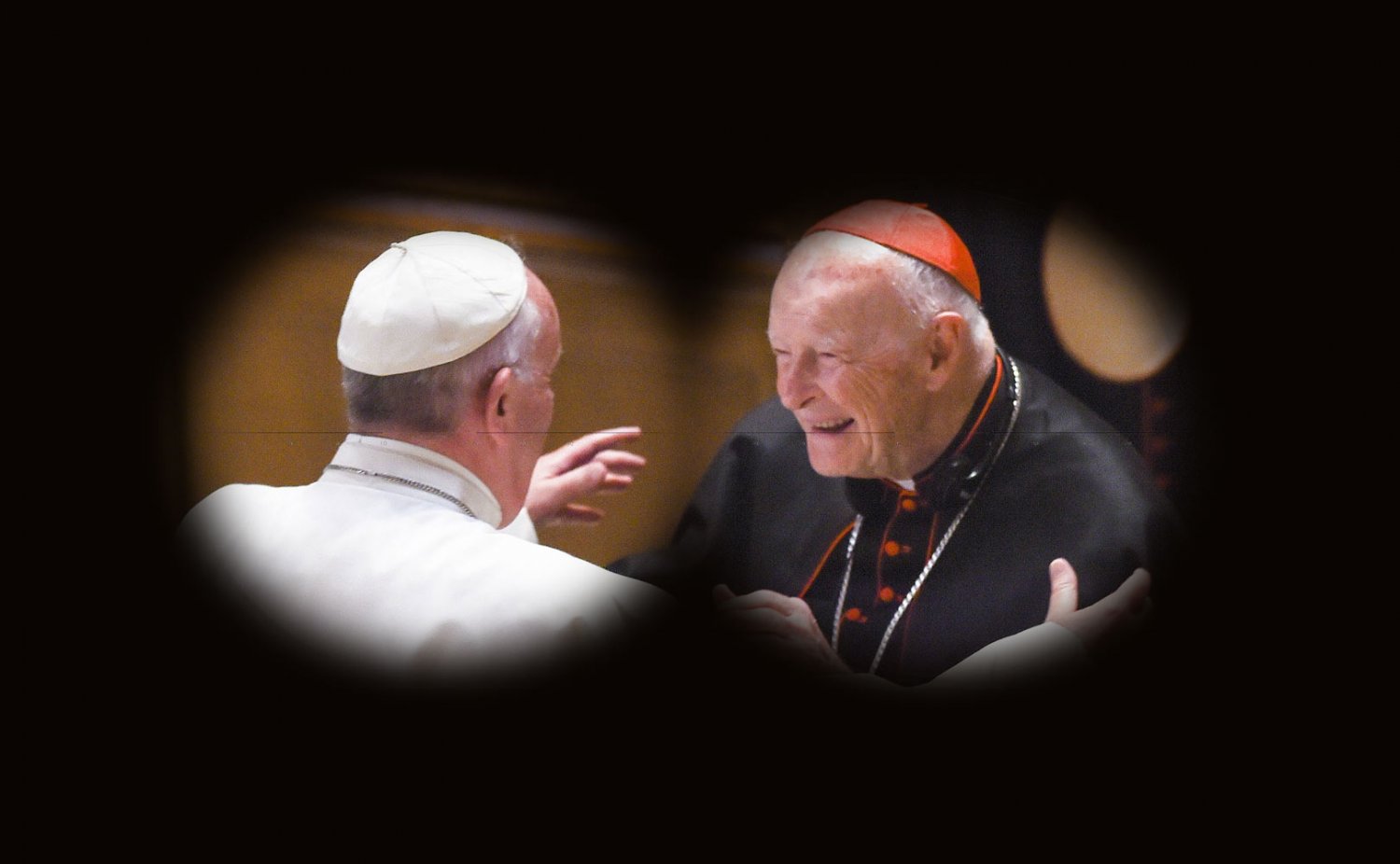It was 2003 and I was a young father sending my daughter to a Catholic elementary school. I wanted to be involved in the direction of the school, so I volunteered for the school board for a three-year term. Most meetings were what you would expect: boring discussions of the details of running a small Catholic school. But one evening the topic turned to something far more significant. Our diocese was implementing the “safe environment” policies that came out of the meeting of bishops in Dallas to respond to the clerical sex abuse crisis (the so-called “Dallas Charter”). That evening we were discussing introducing a “talking about touching” program at our elementary school. It was all part of a well-publicized push by Catholic bishops to show that they cared about the abuse scandal and were doing something about it.
The irony: I was living in the Archdiocese of Washington. Our Archbishop was Cardinal Theodore McCarrick, now revealed as a predator himself.
Pointing the Finger
I had listened to Cardinal McCarrick make earnest-sounding statements when the clerical sexual abuse scandal first hit the news. He wanted to “protect” children, he said. His way of doing so, however, was to implement policies that introduced inappropriate material to children and looked at lay people, including parents, as the potential abusers. It was classic misdirection: look at all our efforts here…and ignore the scandal at the top of the archdiocese.
When the “talking about touching” program was first introduced, I objected to it strongly. I felt it was inappropriate for a school—especially in a co-ed situation—to talk about this topic in a public setting. Think about it: a teacher, who is essentially unknown to the parents, is discussing topics in a classroom such as who can touch your genitals with a group of seven- and eight-year-old boys and girls. Beyond the obvious inappropriateness of this, it’s also a situation ripe for abuse. If a teacher were an abuser, such a class is fertile ground for finding victims. Is it surprising that an archdiocese that was led by a predator would implement such problematic programs?

